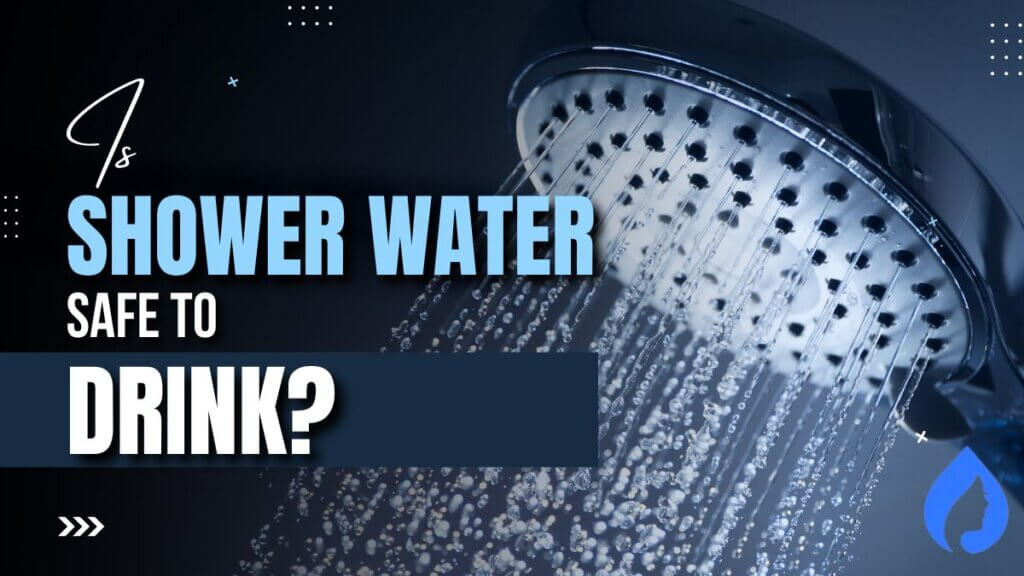
Have you ever tried to drink water from your bathroom shower? Is shower water safe to drink?
Here’s the truth:
Shower water, in general, is not fit for drinking as the water directly comes from your bathroom’s water heater tank, which may comprise impurities, bacteria, chemicals, contaminants, or toxins at a high level.
You can become seriously ill by consuming such water, but in most cases, it’ll not kill you.
Continue reading as we disclose all 5 reasons why shower water is bad for drinking and answer all your frequently asked questions.
Is It Safe to Drink Shower Water: 5 Reasons It’s Not

About a year ago, I went for a tour and stayed in a hotel. Suddenly the tap water dried away, but the shower ran with hot water.
So, I suddenly felt the urge to drink that water. But I somehow controlled myself, and later when I consulted with experts about this, I got dumbstruck.
I realized I saved myself from various serious illnesses by not drinking shower water.
Want To Know The Reasons In Detail?
I am disclosing to you 5 reasons why you should not drink shower water and only depend on natural drinking water. But first, see this table:
| Reason | When Applicable? | Why Does It Make Shower Water Bad? | What Should You Do? |
| You live in an old home. | You are utilizing lead pipes | Lead and additional contaminants can exist in shower water, exposing your household members to lead poisoning risks. | You can use lead filters for faucets, but exchanging your lead pipes and lines with copper is best. |
| You’ve stained shower heads. | The water provided to your residence is hard water | It results in dry skin and dull hair; you and your family will get exposed to nausea, lose motion/diarrhea, and respiratory troubles | You can consider installing a showerhead filter |
| You use water softeners. | Your water softener comprises sodium for removing water hardness | Sodium (over 270 mg/L) acts as a health hazard.* | Avoid using water softeners or use only sodium-free water softeners |
| You’re using water heaters. | Your water heater tank is often heated and again cooled down | Heating and cooling down of the tank might promote bacteria growth; Also, various contaminants, impurities, bacteria, and chemicals might enter the water heater tank along with the flowing water, causing critical health problems | Avoid drinking hot/warm shower water connected to a geyser/water heater |
| You’ve uncovered/stagnant water in a storage tank. | Abnormally large tank/ poor water flowing issues/water blockage | The shower water gets contaminated with various contaminants and harmful bacteria that can make you sick | Avoid creating an abnormally huge tank; check out the water flow-related issues or water blockage-related matters and fix them by calling your plumber |
*Note: 270 mg/L of sodium in water is unsafe for a moderately restricted sodium diet. The limit will be reduced to 20 mg/L for people with low-sodium diets.
You Live In Old Home
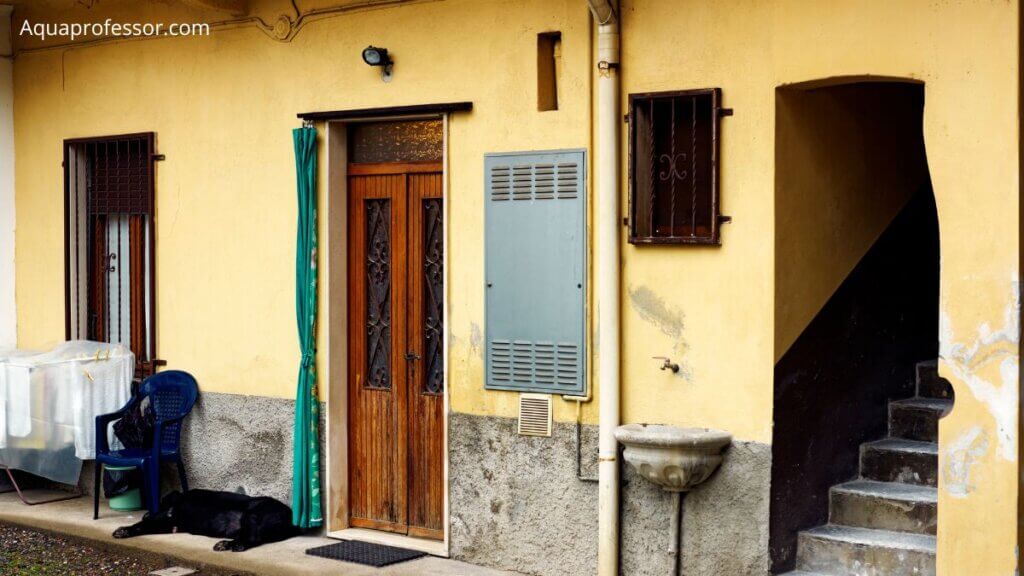
Are you living in an aged home? Then, avoid drinking the shower water of your home and drink normal tap water.
Want To Know Why?
Then, ask it from your house’s lead water pipes as they are the main culprit who is to blame for it.
When Is It Applicable?
It’s applicable if your old house contains lead water pipes.
Unfortunately, many people who live in older buildings haven’t changed the pipings of their houses for decades, and here’s where the problem arises.
Why It Makes Shower Water Bad?
Lead is an extremely dangerous metal, and if it enters your home’s water supply (even in small amounts), it might harm both adults and children.
Here are The Harmful Effects Of Lead
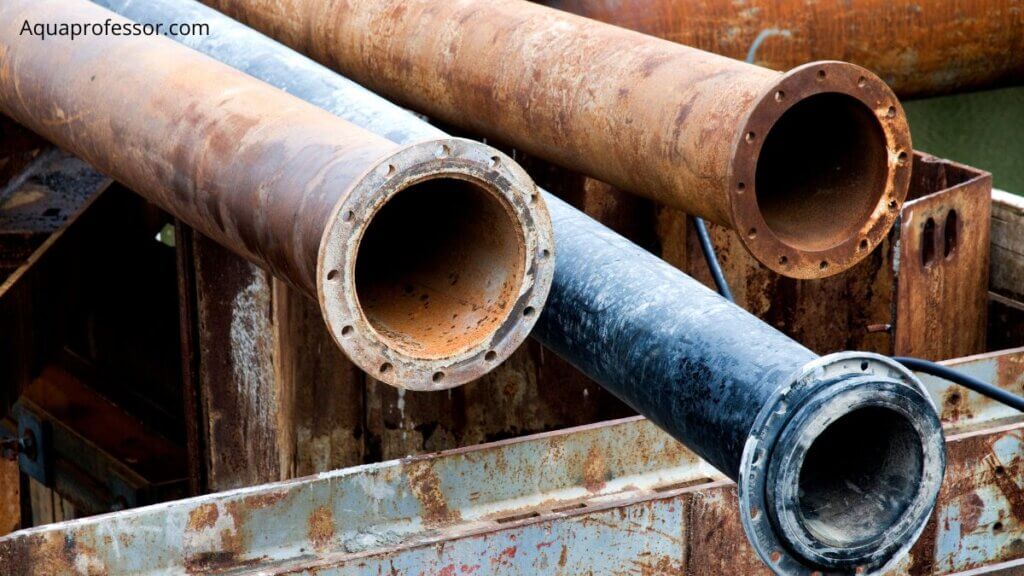
So, better avoid drinking lead-exposed shower water from the bathroom to protect yourself from lead’s potential hazards and instead go for regular drinking water.
What Should You Do?
Lead-exposed water from the bathroom flows through the shower head and the tap.
So, if you have confirmed the presence of lead via lead testing, it’s wise to put lead filters under your showers and taps ASAP.
Of course, the best way is to permanently replace your house’s old pipes made of lead with copper pipes. By doing that, you will not be exposed to lead anymore.
You’ve Stained Shower Heads
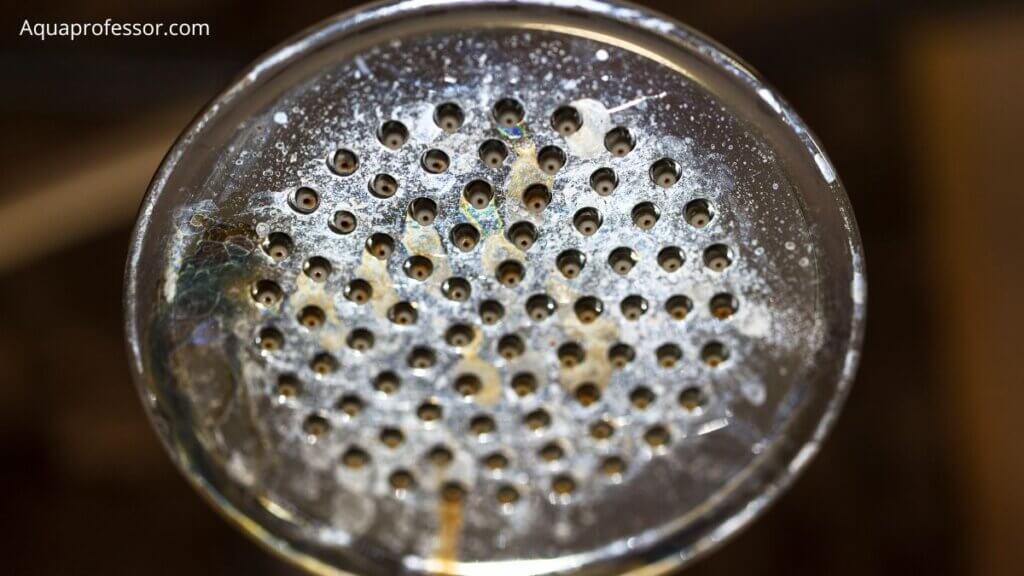
Have you recently noticed stains on your shower heads?
Then, arrange for a close inspection of your shower heads. If you detect molds within or over your shower heads, read our solutions below.
When Is It Applicable?
Stains over your house’s shower heads due to mold growth make it clear that the water supplied to your house is hard water.
Why It Makes Shower Water Bad?
Stained shower heads alert that your streaming water from the bathroom contains bacteria and other contaminants.
So, if you drink shower water, you can be diagnosed with nausea, diarrhea, and respiratory diseases.
What Should You Do?
These types of stains happen on the shower heads and the mouth of the taps.
So, how can you prevent the straining of shower heads and taps?
You can install shower head filters and faucet filters, respectively.
When put in the appropriate places, these filters block chlorine, dirt, pesticides, and other chemicals from entering your house’s showers, thus saving you from the above-mentioned diseases.
Once installed, a showerhead filter or faucet filter will help in the process of skin rejuvenation and that of the hair and nails.
Also Read: Why My Tap Water Has Chlorine-Like Smell
You Use Water Softeners
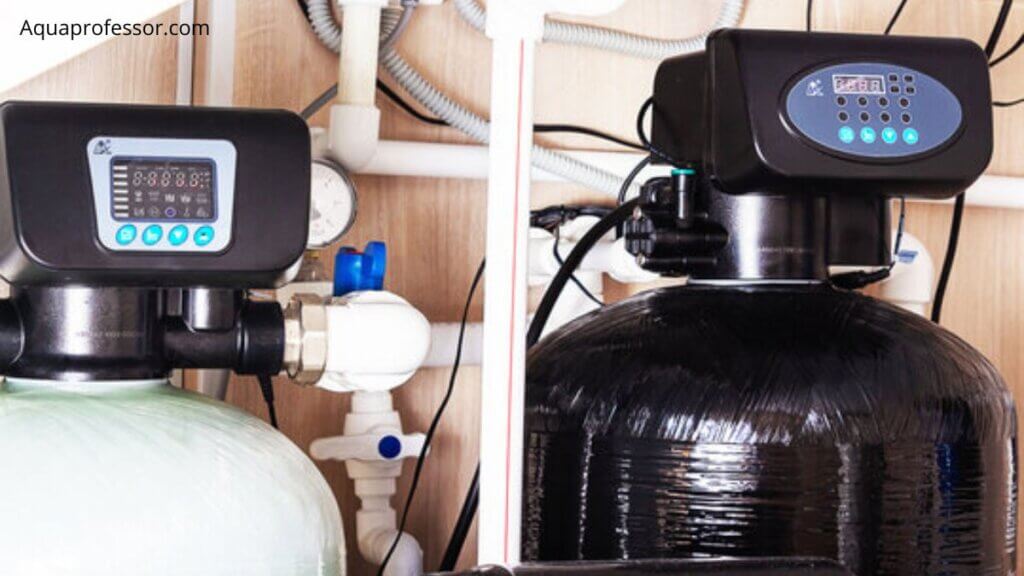
Water softeners are useful for resolving hard water problems, but how do they achieve this feat?
Simple, they exchange calcium and magnesium ions for soft sodium ions in a process known as ion exchange.
But, Here’s The Catch
Adding excessive sodium ions can make your water unsafe for drinking, especially if you are on a low-sodium diet.
The thing which makes bathing safe may not be safe for drinking. Got it?
When Is It Applicable?
This is applicable if you are using salt-based softeners. Today, most water-softening devices usually add sodium ions to remove water hardness.
This makes it excellent for washing clothes in the bathroom but remains unsafe for drinking.
Why It Makes Shower Water Bad?
If you are using softeners, drinking shower water is bad as it may lead to many health hazards associated with high sodium intake.
What Should You Do?
It’s best to avoid drinking shower water that comes from a salt-based water softener and drink tap water.
Also Read: 3 Reasons Why You Should Drink Water Post Massage
You’re Using Water Heaters
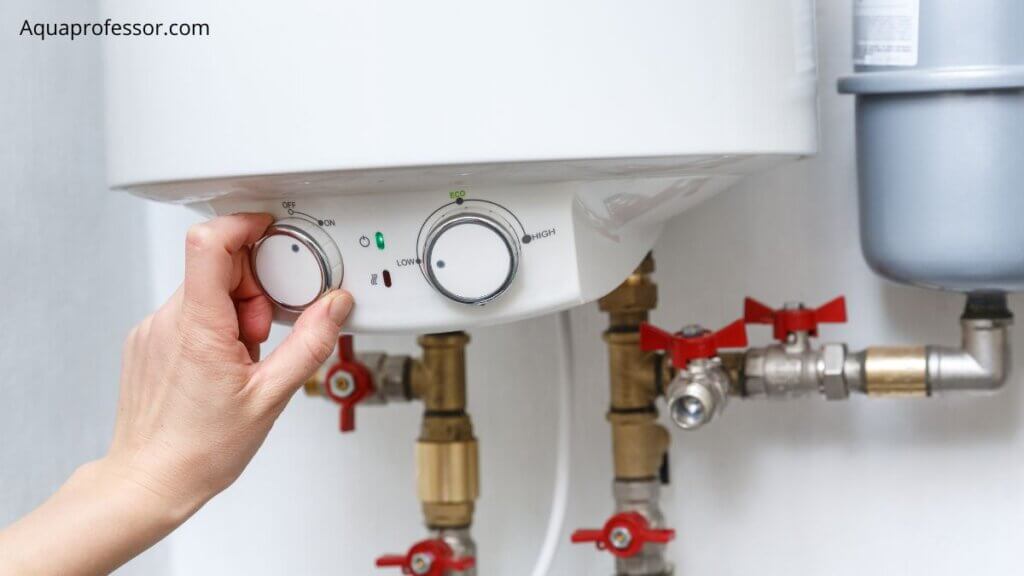
If you are tempted to drink warm water from your heater, then know this:
Even though the water from your geyser is safe for your shower, it’s unsafe to drink.
When Is It Applicable:
We often switch on our geyser/water heater to get heated water and afterwards allow it to cool down so that we can get cold water from it.
In the process of heating up water and cooling it down, many bacteria grow within the water storage tank, as they can easily thrive in such an atmosphere.
Why It Makes Shower Water Bad?
In this case, the bacteria in the shower water makes it bad for drinking.
By drinking such a type of water, you may develop various bacteria-borne diseases.
Besides this, several impurities, bacteria, harmful contaminants, and dissolved chemicals might also enter the water heater tank and the flowing water and cause critical health problems.
What Should You Do?
You may sometimes get unsafe water from the bathroom tap and shower connected to your water heater.
Therefore, it’s better not to drink shower water to avoid health hazards from drinking hot water from the water heater tank.
Also, you may put a filter in the mouth of your tap or shower to avoid such water.
Also Read: The Scientific Research On Activity Of Legionella Pneumophila In Different Water Heater Temperatures
You’ve Uncovered/Stagnant Water In Storage Tank
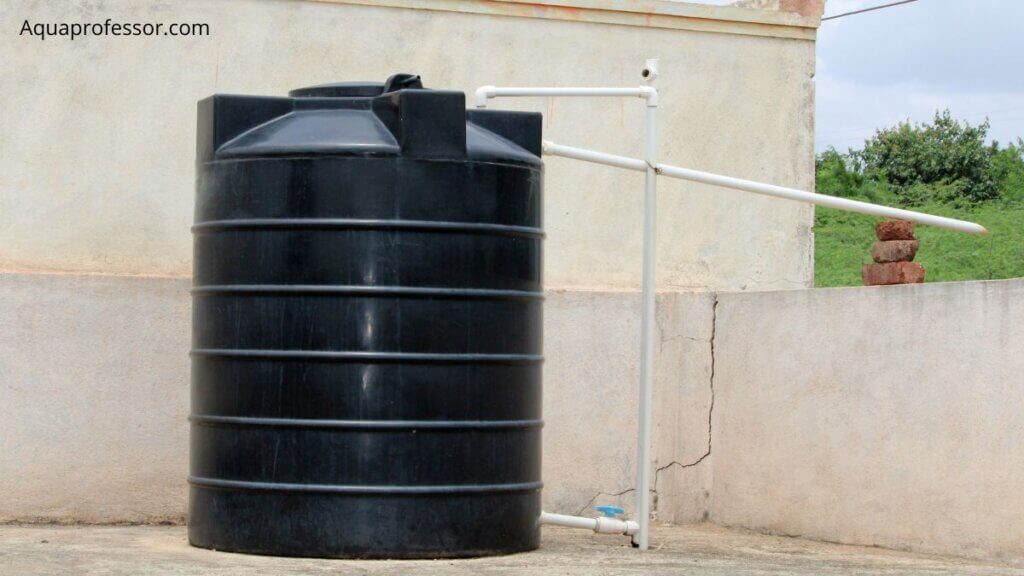
In most houses, you will see independent water sources, one for the bathroom and the other for the kitchen.
Whatever the way, if your tank is not fully covered, it may welcome various contaminants.
However, keeping the water tank fully covered also doesn’t ease one’s tension regarding it. Your water may somehow become stagnant.
Such stagnation in water sources might invite harmful bacteria into it.
When Is It Applicable?
This crisis occurs when the tank is giant or you suffer from poor water flow/water system blockage.
Why It Makes Shower Water Bad?
The shower water of your home gets polluted with numerous contaminants, dangerous bacteria, and other harmful chemicals, making you susceptible to various diseases.
What Should You Do?
For uncovered/stagnant water in a storage tank, you may get bad water from both household taps and showers.
To avoid such situations, never create an abnormally huge tank.
Also, frequently inspect the water flow-related cases and solve the water stoppage-related concerns by contacting your plumber.
Is Shower Water Safe To Drink: FAQs
Is shower water clean?
No, your shower water is not entirely clean. You might feel your shower water is 100 percent safe, but it’s far from clean.
The cleanness of shower water depends on certain things like if your house has old lead pipes or not, if you are using hot heater water or not, if you are using a sodium-based water softener or not, or if your area gets hard water supply or not among other things.
Is shower water the same as tap water?
Though “shower water” and “tap water” might sound different, the truth is that both the taps and the showers get the same water from a single water supply.
Is it safe to drink water from a bathtub?
No, drinking water from a bathtub is not safe at all. After all, the water in the bathtub comes from the same water supply through which the faucets and the showers get water.
So no one can guarantee without testing that the water doesn’t contain any harmful contaminants or bacteria. Hence, always choose to drink purified water from your kitchen.
Why does bathroom water taste different?
Bathroom tap water is colder than water flowing from your kitchen tap. So, because of it, you might have found it tastes different from the kitchen water.
What happens if you drink shower water?
You will not die if you drink water from your shower. However, the warm/hot shower water will make you sick because of the contaminants and bacteria.
So, to avoid all types of health hazards, it is wise to drink kitchen tap water instead of your bathroom’s shower water.
Adarsh is a Health & Nutrition Sciences graduate with expertise in environmental health. He is associated with ventures like Glacier Fresh Filter and Simpure Filter Systems. Through Aqua Professor, he intends to provide helpful information to every home to help them make smarter decisions.
